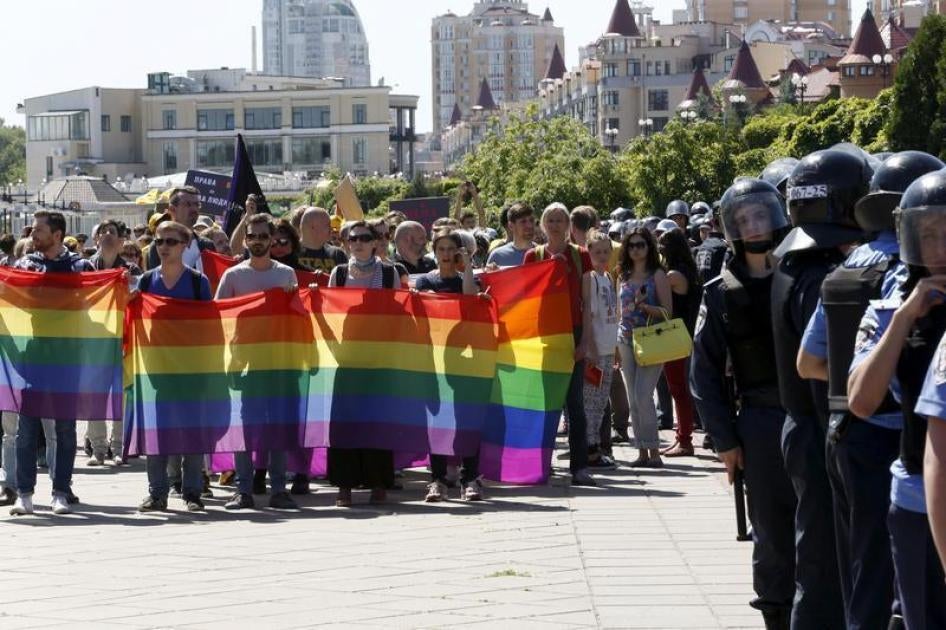Late last week a Kiev court overturned the government’s rejection of a transgender man’s application to have his gender legally recognized. In ruling that the applicant did not have to prove he had been sterilized to receive documents in his preferred gender, the court marked a major inflection point in Ukraine’s lesbian, gay, bisexual, and transgender (LGBT) rights struggle.
Legal gender recognition in Ukraine is governed by Ministry of Health order no. 60, a menacing list of requirements including a mandatory stay in a psychiatric facility, a diagnosis of “transsexualism,” and a humiliating review by an “evaluation commission” or panel of medical experts.
Order no. 60 does not specifically mention sterilization, but it has been a de facto part of the process because both the Health Ministry and the Institute of Urology of the National Academy of Sciences of Ukraine haveinterpreted it as a requirement.
Coerced sterilization of transgender people is a violation of fundamental human rights. Expert bodies have agreed on this for years.
In 2009 the Council of Europe Commissioner for Human Rights noted: “It is of great concern that transgender people appear to be the only group in Europe subject to legally prescribed, state-enforced sterilisation.” The World Professional Association for Transgender Health (WPATH) in 2010 called for removal of any sterilization requirements as part of legal gender recognition.
In 2013 the United Nation special rapporteur on torture called forced sterilization of anyone – including transgender people – “an act of violence, a form of social control, and a violation of the right to be free from torture and other cruel, inhuman, or degrading treatment or punishment.”
A 2014 statement by seven UN agencies, including the World Health Organization, condemned sterilization without the full, free, and informed consent of the individual concerned.
And in a particularly Kafka-esque case of a transgender man who wanted to undergo sex reassignment surgery – which would sterilize him – but was denied his application because he was not already sterilized, the European Court of Human Rights ruled in 2015 that this amounted to a violation of his right to respect for private life.
There is growing global momentum to remove abusive and humiliating medical requirements for transgender people to be recognized as they prefer. While medicine has a role to play in supporting and affirming transgender people, legal gender recognition should be completely separate from all medical procedures.
Ukraine needs to revise many aspects of its legal gender recognition policy, and bring it in line with international best practices by making it efficient, inexpensive, and transparent. This court decision represents one small – and hopeful – step in that process.









